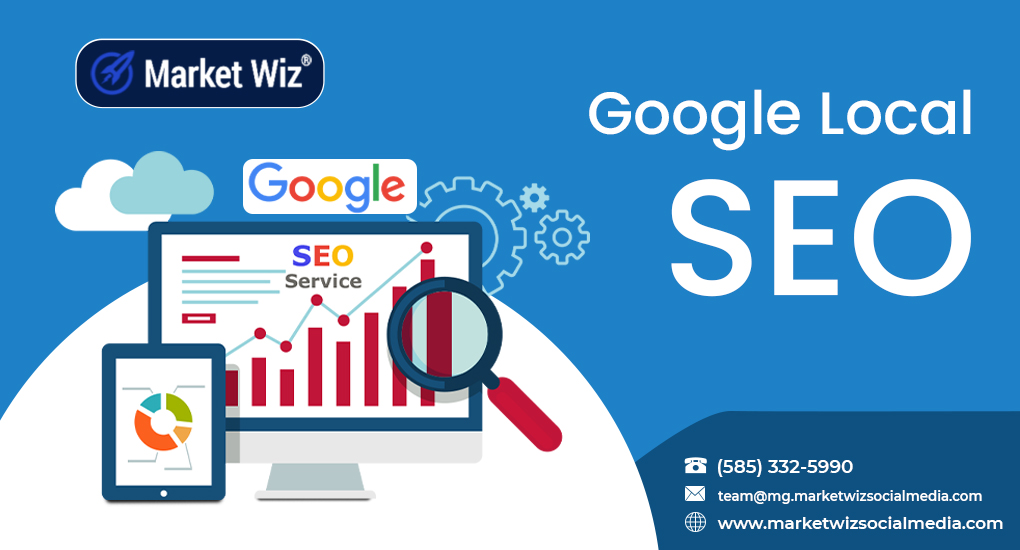SEO can be a complex and expensive undertaking, but it is also one of the most important investments a small business can make. After all, what’s the use of having a great website if no one can find it? By taking the time to understand and implement basic SEO techniques, small businesses can ensure that their websites are visible to potential customers. In this article, we’ll explore some of the most effective SEO strategies for small businesses.
SEO can be a complex and expensive proposition for large businesses, but small businesses can still benefit from basic optimization techniques. By understanding a few key principles of SEO and implementing them on your website, you can improve your visibility in search engine results pages (SERPs) and attract more visitors to your site.If you’re a small business owner, you know that generating traffic to your website is essential to growing your business.
But what’s the best way to get people to find your site? Search engine optimization (SEO) is a solid and effective way to improve your visibility in search engine results pages (SERPs), and it can be done without spending a lot of money. Here are five tips to help you get started with SEO for your small business.
The Importance of SEO for Small Business
As the internet becomes increasingly saturated with content, it is more important than ever for small businesses to have a strong SEO strategy. Without SEO, businesses will be lost in the sea of competing content and will not be able to attract customers.
SEO allows businesses to make their content more visible to potential customers. By optimizing their website and blog posts for search engines, businesses can attract more traffic and convert more leads into customers.
SEO is also important for building brand awareness. When customers see a business’s name appearing in search results, they are more likely to trust that brand. This trust can lead to repeat customers and word-of-mouth marketing.
Overall, SEO is essential for small businesses that want to succeed online. By investing in SEO, businesses can improve their visibility, attract more leads, and build trust with potential customers.
What Exactly is Search Engine Optimization?
Search Engine Optimization, or SEO, is the process of improving the ranking of a website on search engines. The higher the ranking, the more likely people are to find the site.
SEO is done by optimizing the website content, structure, and code to make it more relevant to the keywords that people are searching for. The goal is to make the site easier for search engines to find and index, and ultimately, to bring more traffic to the site.
There are a number of factors that go into SEO, and it can be a complex and time-consuming process. However, it can be extremely beneficial to a website, as it can lead to increased traffic and visibility.
SEO Strategy
An SEO strategy is a plan of action taken to improve search engine rankings for a specific website. The main goal of an SEO strategy is to increase visibility in organic, or unpaid, search results.
Another important element of an SEO strategy is link building. Link building is the process of creating links from other websites back to your own.
Keyword Research
There are many different factors that go into an effective SEO strategy. One of the most important is keyword research. Keyword research helps you identify the terms that potential customers are using to search for products or services like yours. Once you know which keywords to target, you can incorporate them into your website’s content in a way that will make your site more visible to search engines.
Optimizing Images For SEO
Images are an essential part of any website. Not only do they contribute to the overall aesthetics, but they also play a role in search engine optimization (SEO). In order for your images to be optimized for SEO, there are a few things you need to do.
First, make sure that your images are relevant to the content on your website. This means that you should use keywords in the file names and alt text of your images. For example, if you have an image of a dog on your website about pet care, you might want to use a file name like “dog-care-tips.jpg” and include keywords like “dog” and “care” in the alt text.Second, make sure that your images are of high quality. This means that they should be clear and sharp, with no pixelation or blurriness.
Page Layout for Improving SEO for small business
- Page layout is important for improving SEO for small businesses. By optimizing the layout of your website, you can improve your ranking in search engines and attract more visitors.
- There are a few things to keep in mind when optimizing your page layout for SEO. First, make sure your website is easy to navigate and that all of your content is easily accessible. Second, use keyword-rich titles and descriptions to help improve your visibility in search results. Finally, make sure your website loads quickly and is mobile-friendly.
- By following these tips, you can improve your page layout and attract more visitors to your website. Optimizing your website for SEO will help you achieve success in the online world.
Backlinking and Off-Page SEO
- Backlinking and Off-Page SEO are two of the most important aspects of search engine optimization for small businesses.
- Backlinking is the process of creating links from other websites to your own, while Off-Page SEO refers to optimizing your website for the search engines in order to improve your ranking.
- Both backlinking and Off-Page SEO are essential for small businesses that want to rank high in the search engines and get more traffic to their website.
- Backlinking can be done by submitting articles to article directories, creating blog posts and commenting on other blogs, while Off-Page SEO includes optimizing your website’s title, description and keywords.
Social Sharing Relevant Content
As a small business, one of the best things you can do to get more traffic to your website is to share relevant content on social media. This will help you not only attract new visitors, but also keep existing customers coming back for more.To make sure your content is relevant, start by identifying what topics your target audience is interested in. Once you know what they want to read about, create blog posts, infographics, and other types of content that offer value and are shareable.
In addition to sharing great content, be sure to be active on social media. Post updates regularly, respond to comments and questions, and engage with other users. By doing this, you’ll build a strong community of followers who are more likely to share your content and help promote your business.
Page Speed and Technical SEO
Small business owners have a lot on their plate. In addition to running their business, they often wear many hats including marketing, sales, and customer service. With so much to do, it’s easy to let some things slide, like keeping up with the latest SEO trends. However, if you want your small business to succeed online, it’s important to stay on top of technical SEO and page speed.
Technical SEO includes things like making sure your website is properly structured and coded, optimizing your title tags and meta descriptions, and creating an XML sitemap. These are all relatively easy things to do but they make a big difference in how search engines index and rank your website.
Page speed is also important for both users and search engines.

Mobile-Friendly Website
As more and more people use their mobile devices to access the internet, it is becoming increasingly important for businesses to have a mobile-friendly website. There are a number of benefits to having a mobile-friendly website for your small business.
First, it will make it easier for potential customers to find your website. If your website is not optimized for mobile devices, it is likely that potential customers will give up trying to view it on their phone and simply move on to another business.
Second, a mobile-friendly website will provide a better user experience for those who do visit your site. If your website is not easy to navigate on a mobile device, visitors are likely to get frustrated and leave without taking any action.Finally, having a mobile-friendly website can help you rank higher in search engine results.
Low-budget branding
In today’s economy, small businesses are looking for ways to cut costs and save money. One way to do this is by low-budget branding. Low-budget branding can be a great way to get your business noticed without spending a lot of money.There are a few things you can do to low-budget brand your small business. First, you need to come up with a clever and catchy name for your business. This will be the first thing people notice about your business, so make sure it’s something that will grab their attention.
Next, you need to create a logo for your business. This doesn’t have to be anything fancy – a simple design that represents what your business is all about will suffice. You can either create the logo yourself or hire someone to do it for you.Finally, you need to get some marketing materials made.In today’s economy, small businesses are looking for ways to cut costs and save money. One way to do this is by low-budget branding. Low-budget branding can be a great way to get your business noticed without spending a lot of money.
There are a few things you can do to low-budget brand your small business. First, you need to come up with a clever and catchy name for your business. This will be the first thing people notice about your business, so make sure it’s something that will grab their attention.
Next, you need to create a logo for your business. This doesn’t have to be anything fancy – a simple design that represents what your business is all about will suffice. You can either create the logo yourself or hire someone to do it for you.
Finally, you need to get some marketing materials made.
Videos To Your Website
Adding videos to your website for small business is a great way to connect with your audience and improve your website’s overall look and feel. Videos can help explain your products or services in a concise and engaging way, making it more likely that visitors will stay on your site longer and take action.There are a few things to keep in mind when adding videos to your website: make sure the videos are high-quality and relevant to your business, use descriptive titles and tags so people can easily find them, and embed the videos directly onto your site rather than linking to them from another platform.
Adding videos to your website is a relatively simple process that can have a big impact on how visitors perceive your business. Take the time to create engaging, informative videos that will give potential customers a better sense of what you have to offer.
List your business on related directories
If you own a small business, you know how important it is to get your name out there. One way to do this is to list your business on related directories. This will help potential customers find you when they are searching for businesses like yours.
There are a few things to keep in mind when listing your business on a directory. First, make sure that the directory is relevant to your business. There is no point in listing your business on a directory that doesn’t have anything to do with what you do. Second, make sure that the directory is well-established and has a good reputation. You don’t want to list your business on a directory that no one has ever heard of. Finally, make sure that the directory allows you to include all of the important information about your business, such as your website address and contact information.
Start making great content
Creating high-quality content is essential for any business, but it can be especially important for small businesses. Why? Because great content can help you attract and retain customers, build trust and credibility, and even boost your search engine rankings.
So how do you create great content? Here are a few tips:
- Write compelling headlines. Your headline should be attention-grabbing and make people want to read more.
- Use strong visuals. Include images, infographics, and videos in your content to break up the text and add interest.
- Be helpful and informative. Give your readers valuable information that they can use.
- Be unique.
Ratings and reviews
When customers are looking for a new product or service, they often turn to ratings and reviews to help them make their decision. And small businesses are no different – ratings and reviews can make or break a small business.
But how do you get started? How do you get customers to leave ratings and reviews?
There are a few key things you can do to encourage customers to leave ratings and reviews for your small business:
- Make it easy for customers to leave ratings and reviews. Include links on your website and social media pages, and make sure your contact information is up to date.
- Give customers an incentive to leave ratings and reviews. Offer a discount or coupon code for those who take the time to write a review.
- Respond to all ratings and reviews – good or bad.
Keep your online information up to date
In today’s digital age, it’s more important than ever to keep your online information up to date for small business. Here are three reasons why:
- First and foremost, it’s a matter of security. If your website or online storefront is outdated, it could be vulnerable to attack. hackers are always on the lookout for weak spots in websites, and an outdated website is an easy target.
- Secondly, keeping your online information up to date shows customers that you’re a professional operation. If your website looks like it was last updated in the early 2000s, customers will likely take their business elsewhere. In this day and age, first impressions matter – and your website is often the first point of contact between you and potential customers.
Get your small business to the top of Google with these SEO tips
As a small business, it can be difficult to make your way to the top of Google. However, by following these SEO tips, you can get your business to the top of the search engine results pages.
- Use relevant keywords in your website content. Make sure that the keywords you are using are ones that potential customers are actually searching for.
- Optimize your website for mobile devices. More and more people are using their smartphones and tablets to search for businesses online. If your website is not optimized for mobile devices, you’re likely losing out on potential customers.
- Make sure your website is fast and easy to use. Visitors will quickly click away from a website that is slow or difficult to navigate.
Outrank your competition with these easy SEO tricks
As a small business, it’s important that you stay ahead of your competition. One way to do this is by making sure your website is optimized for search engines. Here are some easy SEO tricks that will help you outrank your competition:
- Make sure your website is mobile-friendly. More and more people are using their smartphones to search the web, so it’s important that your website can be easily viewed on a small screen.
- Use relevant keywords on your website. Choose words and phrases that potential customers are likely to search for when looking for a business like yours. Use these keywords throughout your website, including in the titles and descriptions of your pages.
- Get listed in online directories. When people are looking for a local business, they often turn to online directories like Yelp or Google Maps.
Dominate search results with these foolproof SEO methods
When it comes to SEO, small businesses have a big advantage over their larger counterparts. With fewer resources and less competition, small businesses can easily dominate search results with the right SEO methods. Here are three foolproof SEO methods that will help your small business dominate search results:
Optimize your website for the right keywords.
The first step to dominating search results is to optimize your website for the right keywords. Identify the keywords that your target audience is searching for, and then make sure that your website is optimized for those keywords. This includes both on-page optimization (like using the keyword in your title tags and meta descriptions) and off-page optimization (like building links to your website).
Create great content.
One of the best ways to dominate search results is to create great content that is relevant to your target audience.
Why bother with SEO for small business?
- Search Engine Optimization (SEO) is vital for any business that wants to be visible online, but it can be especially important for small businesses.
- Small businesses often have a limited marketing budget, so they need to make every dollar count. Investing in SEO can help them get more bang for their buck by helping them reach more customers online.
- SEO can also level the playing field between small and large businesses, since it can help small businesses compete with larger companies for visibility in search engine results pages (SERPs).
Overall, investing in SEO is a smart move for any small business that wants to succeed online. By investing in SEO, small businesses can improve their visibility, reach more customers, and level the playing field with larger companies.
How to get started with SEO for small business?
Are you a small business owner looking to take your business to the next level? If so, you may be wondering how to get started with SEO.
SEO, or search engine optimization, is a process of improving the visibility and ranking of your website on search engines like Google.
While it may seem daunting at first, there are plenty of resources and support available to help you get started with SEO for your small business. Here are a few tips:
- Do your research. There is a lot of information available on SEO, so it’s important to spend some time reading up on the basics before getting started. A good place to start is Google’s Webmaster Guidelines.
- Identify your goals. What do you want to achieve with SEO? More traffic? More sales?
What are the benefits of SEO for small business?
- SEO can be a huge boost for small businesses. By optimizing your website for search engines, you can increase your visibility and draw more traffic to your site. This can lead to more customers and sales for your business.
- SEO can help you stand out from your competitors. If you rank higher in search results, potential customers are more likely to find and click on your site over your competitor’s.
- SEO can help you save money on advertising. By getting free organic traffic from search engines, you can avoid expensive paid advertising methods like pay-per-click ads. This can help you keep more of your marketing budget free to invest in other areas of your business.
- Increased web visibility. Small businesses often have a limited marketing budget, so it’s important to make the most of every dollar. One way to do this is by investing in SEO, which can help your website rank higher in search engine results pages (SERPs). This increased visibility can lead to more website visitors and, ultimately, more customers.
- Improved brand awareness and recognition. When potential customers search for keywords related to your business, they’re more likely to see your company name among the top results.
How to Find the Right SEO Service for Your Small Business
As a small business owner, the thought of working with an SEO service may have crossed your mind. After all, SEO is essential for helping your website rank high in search engine results pages (SERPs), and generating organic traffic.
But with so many different SEO services out there, it can be tough to know which one is right for your business. Here are four tips on how to find the right SEO service for your small business:
Define Your Goals
Before you start looking for an SEO service, it’s important to first define your goals. What do you want to achieve with SEO? Do you need help with on-page optimization, link building, or both? Once you know what you need, you can start searching for an SEO service that specializes in those areas.
- In today’s digital world, having a strong online presence is essential for any business, big or small. Search engine optimization (SEO) is a solid and sustainable way to organically grow your business online and reach more customers.
- While you can certainly try to do SEO yourself, it’s often best to leave it to the professionals who know how to get the job done right. Here are four reasons why hiring an SEO service can be beneficial for your small business:
- You Don’t Have the Time: As a small business owner, your time is already stretched thin. Trying to add one more thing to your plate by doing your own SEO can end up being overwhelming and taking away from other areas of your business that need attention.






